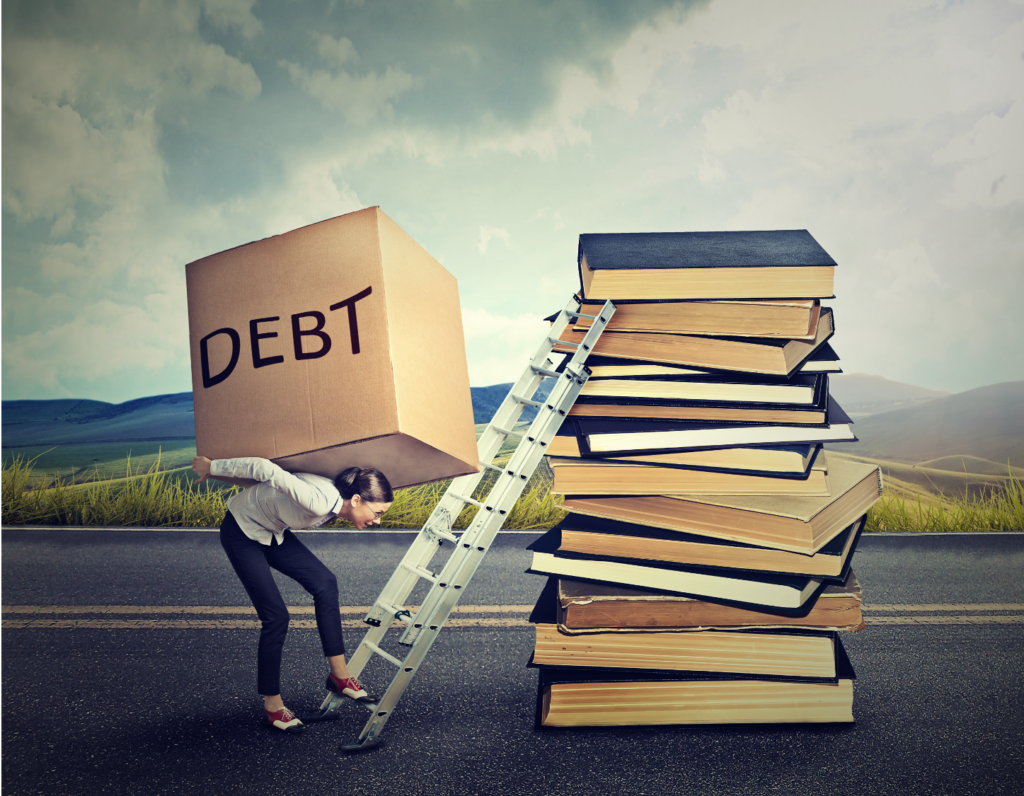By Mickey Fontaine
Tuition loans have more than doubled in the last two decades, causing a myriad of problems for our country’s economy. And worst of all, a majority of this burden is held by people 20 to 30 years of age, a time in one’s life that should not be spent at the mercy of unpayable debts.
Future generations are critical to our society and economy, and they are increasingly restrained by unrealistic social expectations and nigh-impossible-to-pay debt. It is possible to falsely attribute the term “crisis” to the cyclic motions of business dynamics, and to confuse natural economic patterns with calamity. But student debt has more than earned the privilege of being called a crisis.
The US Bureau of Labor Statistics compares the rate of past dues, defaults, and balance declines of student debt to other financial obligations, such as credit card bills and auto loans. They found that the latter correlate with recession and fluctuation much more than student loans. Student loans do not follow the up-and-down patterns of the economy, they simply rise. This hurts students much more than if it was a predictable fluctuation.
There are many reasons for this crisis, but a primary cause is the increased availability of federal loans, paired with wage stagnation. After the 2007 recession, there was pressure for economic changes to be made. Amidst many policy shifts made by Congress over this period, there was an overhaul of the Federal Direct Loan program that allowed it to source its loans from the National Treasury. This monumentally increased the availability of college funding, giving many more students the ability to enroll.
Although this change seems like it would bring positive results, it only made the problem worse. Institutions were now able to raise their prices to compete with the loans being made, without dropping enrollment rates, and the idling wage rates of young workers made the issue even more severe. Between 1980 and 2019, college fees rose by 169%, while wages for young workers aged 22 to 27 went up only by 19%, according to a study published by The Hill. This imbalance between wages and fees makes paying off loan debt at times impossible, and has systematically destructive effects for our economy.
One of the results of this crisis is a decline in business entrepreneurship. To understand the negative effects of student debt on the business ecosystem, you need to also understand the importance of startups. Startups are newly established businesses that can easily adapt and overcome financial roadblocks to help drive the evolution of the economy due to their financial agility and ability to shape themselves to the interests of companies and consumers.
The Federal Reserve Bank of Richmond describes “transformative” startups as “large, vibrant firms that provide jobs and income for other individuals, typically by providing a new good or service or by entering markets previously unserved.”
Even with the availability of angel and capital investment, the majority of new businesses are funded out-of-pocket in their initial years. And with rising student loans, young entrepreneurs have fewer resources to fund startups, causing failure rates to rise. Instead, they are forced to make economic trade-offs to repay loans, which degrades their financial integrity, in turn making it more difficult for them to get off the ground economically.
Imagine being a recently graduated business innovator who is willing to dedicate personal funding towards a startup; the sacrifices one is willing to make in this situation can be at times financially crippling or impossible due to the weight of student debt. Even if one is economically stable, maintaining the balance between debt and innovation can threaten to force one beneath the poverty line. This is somewhere that more and more youth are finding themselves.
It is undeniable that the student debt crisis is one of the most dangerous systemic issues in the US. Due to its widespread severity, its sphere of influence reaches further than just financial well-being; it presents dangers to the business ecosystem, the job market, and public well-being. With the amount of political polarization and conflict in the country, an end to this economic blight seems distant. If attention is not directed toward this crisis, it will only get worse. Currently, it could go either way, and all you can hope for is future change.

